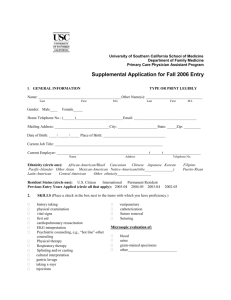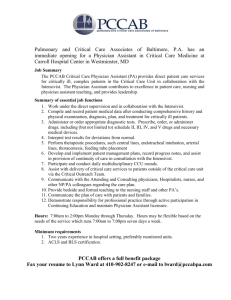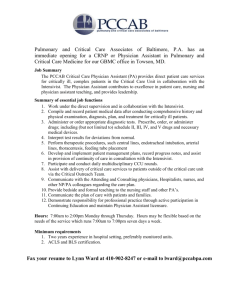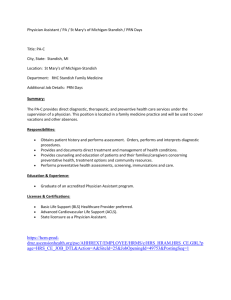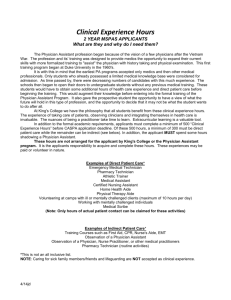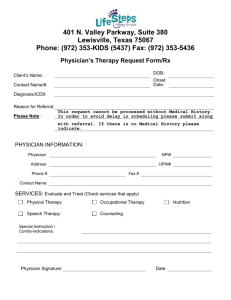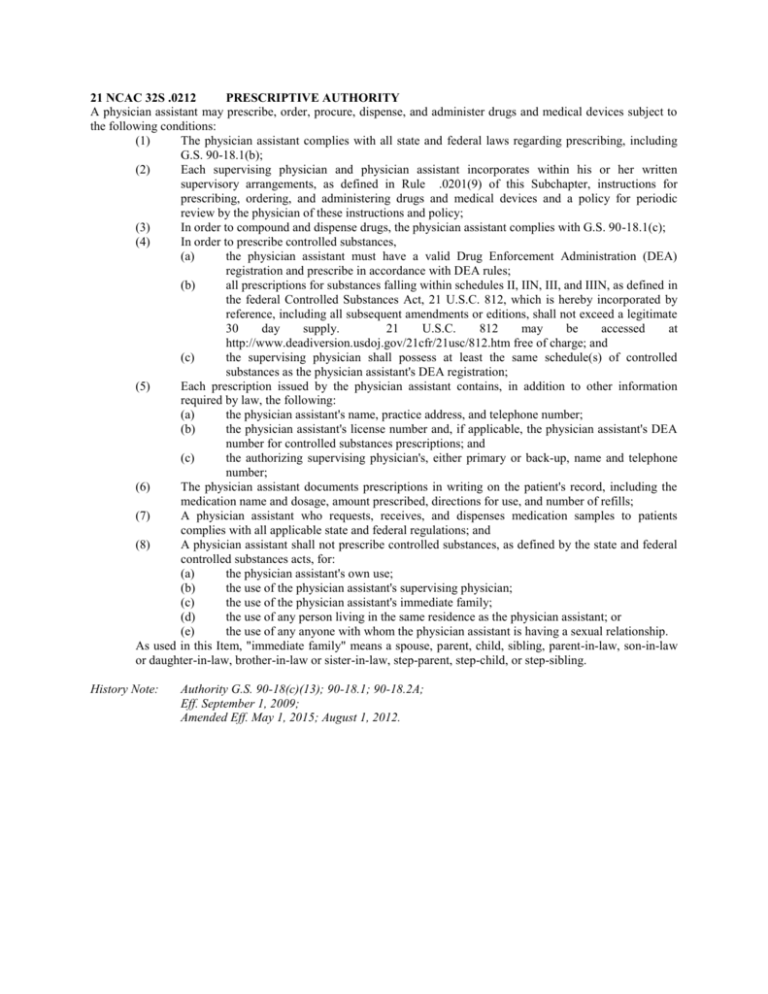
21 NCAC 32S .0212
PRESCRIPTIVE AUTHORITY
A physician assistant may prescribe, order, procure, dispense, and administer drugs and medical devices subject to
the following conditions:
(1)
The physician assistant complies with all state and federal laws regarding prescribing, including
G.S. 90-18.1(b);
(2)
Each supervising physician and physician assistant incorporates within his or her written
supervisory arrangements, as defined in Rule .0201(9) of this Subchapter, instructions for
prescribing, ordering, and administering drugs and medical devices and a policy for periodic
review by the physician of these instructions and policy;
(3)
In order to compound and dispense drugs, the physician assistant complies with G.S. 90-18.1(c);
(4)
In order to prescribe controlled substances,
(a)
the physician assistant must have a valid Drug Enforcement Administration (DEA)
registration and prescribe in accordance with DEA rules;
(b)
all prescriptions for substances falling within schedules II, IIN, III, and IIIN, as defined in
the federal Controlled Substances Act, 21 U.S.C. 812, which is hereby incorporated by
reference, including all subsequent amendments or editions, shall not exceed a legitimate
30
day
supply.
21
U.S.C.
812
may
be
accessed
at
http://www.deadiversion.usdoj.gov/21cfr/21usc/812.htm free of charge; and
(c)
the supervising physician shall possess at least the same schedule(s) of controlled
substances as the physician assistant's DEA registration;
(5)
Each prescription issued by the physician assistant contains, in addition to other information
required by law, the following:
(a)
the physician assistant's name, practice address, and telephone number;
(b)
the physician assistant's license number and, if applicable, the physician assistant's DEA
number for controlled substances prescriptions; and
(c)
the authorizing supervising physician's, either primary or back-up, name and telephone
number;
(6)
The physician assistant documents prescriptions in writing on the patient's record, including the
medication name and dosage, amount prescribed, directions for use, and number of refills;
(7)
A physician assistant who requests, receives, and dispenses medication samples to patients
complies with all applicable state and federal regulations; and
(8)
A physician assistant shall not prescribe controlled substances, as defined by the state and federal
controlled substances acts, for:
(a)
the physician assistant's own use;
(b)
the use of the physician assistant's supervising physician;
(c)
the use of the physician assistant's immediate family;
(d)
the use of any person living in the same residence as the physician assistant; or
(e)
the use of any anyone with whom the physician assistant is having a sexual relationship.
As used in this Item, "immediate family" means a spouse, parent, child, sibling, parent-in-law, son-in-law
or daughter-in-law, brother-in-law or sister-in-law, step-parent, step-child, or step-sibling.
History Note:
Authority G.S. 90-18(c)(13); 90-18.1; 90-18.2A;
Eff. September 1, 2009;
Amended Eff. May 1, 2015; August 1, 2012.

